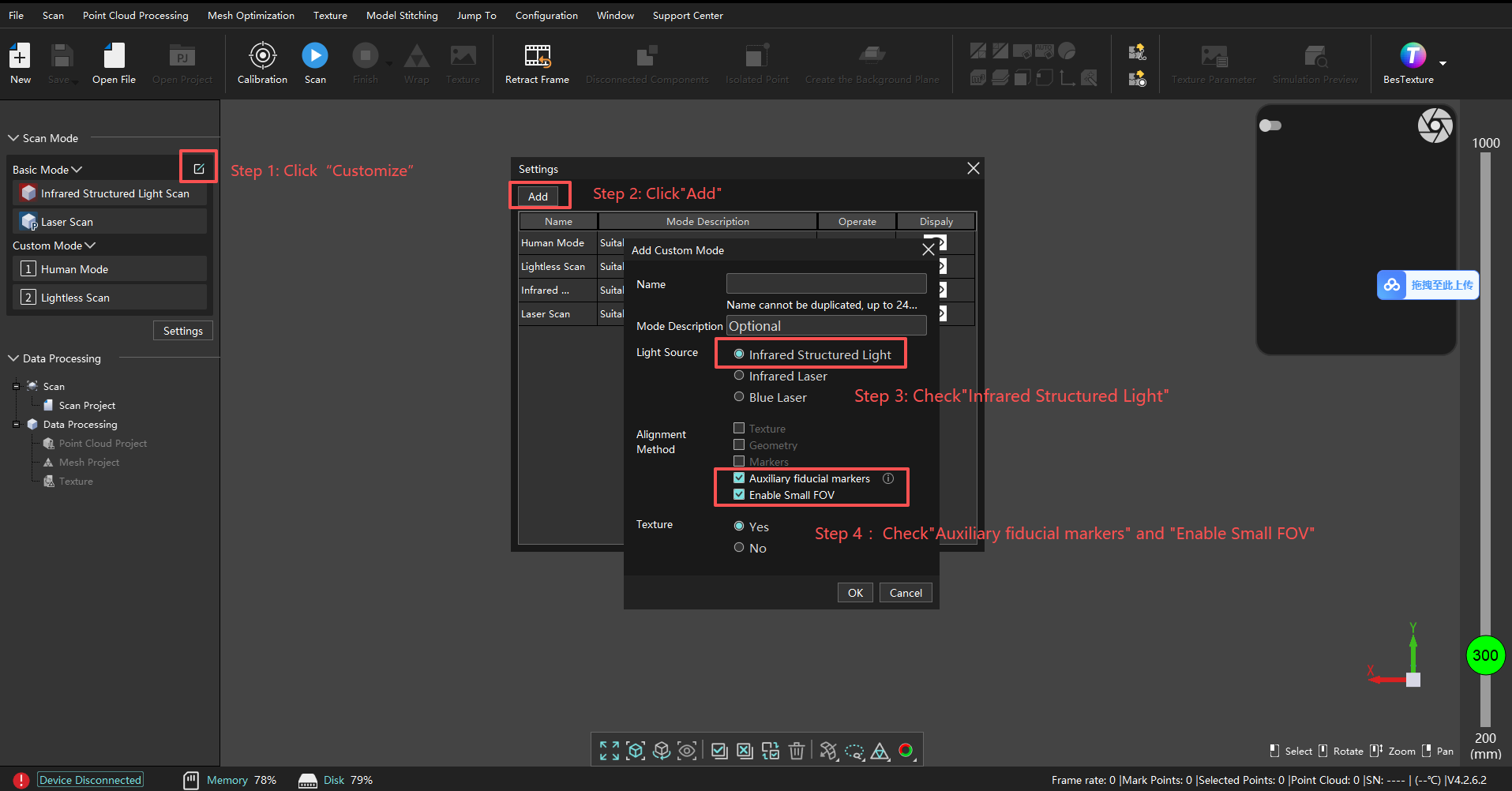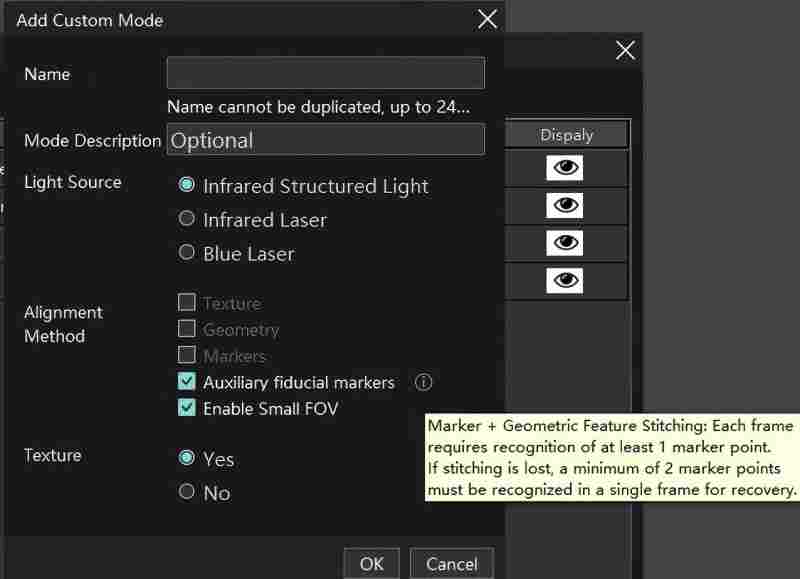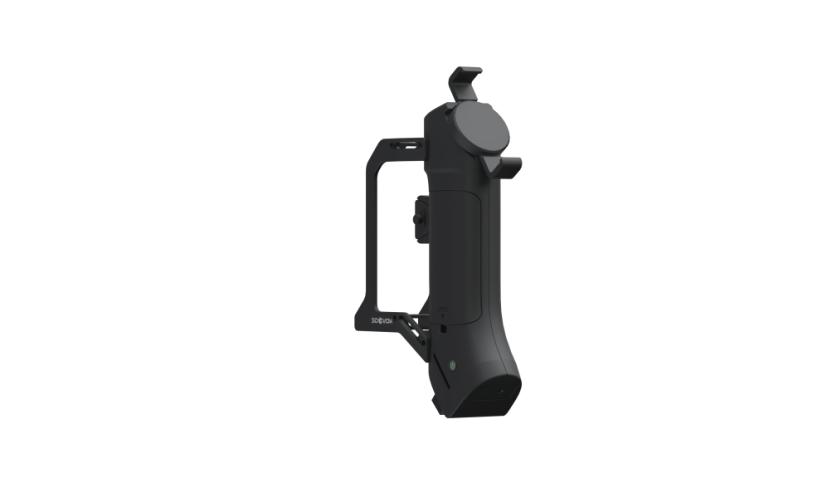Auxiliary Fiducial Markers Mode Launched: Enhancing Stability in Infant Cranial Orthosis Scanning
09/19/25
In infant cranial orthosis therapy, helmet therapy has become a common intervention. To ensure orthotic helmets are accurately customized and comfortably fitted, clinicians need high-precision 3D scanning of the infant’s head. However, infants often find it difficult to remain still during scanning; frequent head movements can lead to missing data or distorted models, affecting the precision and fit of the orthosis. This challenge has long troubled both clinicians and engineers.
3DeVOK Studio Scanning Software New Feature: Auxiliary Fiducial Markers Mode
To address the challenge of head movement during infant scanning, 3DeVOK Studio 3D scanning software introduces the Auxiliary Fiducial Markers Mode.
- Avoid hair interference:For infants with hair, a head cap with a few attached marker points can be used instead of applying markers directly on the skin, ensuring better conformity to head shape.
- Stable tracking algorithm: Even if the infant moves slightly during scanning, the system can reliably track and reconstruct complete 3D data.
- Small FOV function: The new “Enable Small Fov” option generates point clouds only within a 70mm radius around each marker in a single frame. Other areas are automatically excluded, preventing capture of shoulders or background, reducing data redundancy and post-processing workload.
In complex clinical environments, the Auxiliary Fiducial Markers Mode significantly improves scan success rates, reducing the need for repeated scans and minimizing discomfort for infants and anxiety for parents.
How to Set Up Auxiliary Fiducial Markers Mode?
Setting up is simple in 3DeVOK Studio:
- Open 3DeVOK Studio scanning software and click the “Customize”button next to “Basic Mode”.
- Select “Add”to create a new mode.
- Enable”Infrared Structured Light” m
- In the stitching options, check “Auxiliary fiducial markers”and “Enable Small Fov”.
- Save the settings to start scanning.


Usage Notes
When using the Auxiliary Marker-Point Mode, please keep the following points in mind:
- Marker placement is critical. Do not place two markers on the same flat area; at least one should be positioned on a curved corner to improve recovery stability in case of frame loss.
- At least one marker must be visible in each frame to ensure continuous system tracking.
- The default small-frame range is 70mm, which effectively focuses on head data and prevents capturing unnecessary areas.
- This mode is especially suitable for clinical environments or scenarios where infants make slight movements, significantly improving scanning stability and success rates.
Model Validation: Reliable and Stable Output
In the latest demonstrations using infant head models, the Auxiliary Fiducial Markers mode successfully generated continuous and complete 3D models, even under simulated head movements. Compared to traditional modes, it shows clear advantages in data integrity and stability, providing a reliable technical foundation for 3D digital cranial orthosis therapy.
Clinical Value and Applications
- Higher success rate: Reduces scan failures and missing data, lowering rework.
- Higher accuracy: Provides individualized, precise data for orthotic helmets.
- Higher efficiency: Shortens scanning time, minimizing disruption from infant movement.
- Broader applicability: Suitable not only for infants but also for patients with Parkinson’s disease, post-operative rehabilitation, and others who cannot remain still.
Outlook
The launch of Auxiliary Fiducial Markers mode represents a significant upgrade in 3DeVOK’s 3D digital orthosis solutions. Moving forward, we will collaborate with more medical institutions to apply this innovative feature in real clinical cases, providing doctors and patients with a more precise and user-friendly digital care experience.
Related Articles
View Our Product





